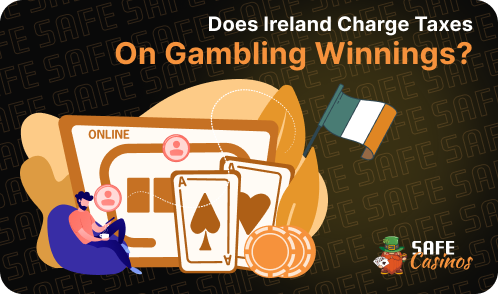Gambling is a common activity in Ireland, enjoyed by many at casinos, betting shops, and online platforms. We all like winnings. However, it’s important to know that gambling winnings are subject to taxation in Ireland. In this article, I’ll explain how these winnings are taxed and what players should keep in mind to comply with the rules.
In Ireland, the taxation of gambling winnings varies depending on the type of gambling activity and the amount won. Winnings from activities like betting, lotteries, and casino games are generally considered capital gains and may be subject to Capital Gains Tax (CGT), the specific rate can vary depending on the circumstances of the individual taxpayer. However, not all gambling winnings are subject to CGT; for example, winnings from the Irish National Lottery are exempt from tax.
Regarding the betting tax, there is a flat 2% tax rate applied to the total amount wagered by the bettor. However, it’s important to clarify that this tax is levied on the bookmaker or betting operator, not the individual bettor. The tax is based on the total amount wagered rather than the amount won. This tax applies to both land-based and online betting operators.
It’s worth noting that while gambling operators may be required to withhold taxes from certain types of winnings in other countries, this practice is not common in Ireland. Instead, individuals are responsible for reporting their gambling winnings to the Revenue Commissioners and paying any applicable taxes themselves.
In summary, winnings from online and land-based casinos are generally subject to taxation. Individuals need to understand their tax obligations and report their winnings accurately to comply with the law. However, the specific tax rates and procedures may vary depending on the type of gambling activity and individual circumstances.








